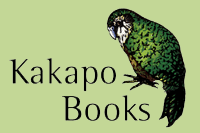"Absolutely splendid - by a long way the most incisive comment on the current issues, and positive in ways nothing else is".
(Professor Andrew Gurr, University of Reading, UK ) "stimulating...provocative"
(Janet Wilson, NewZ) |
At
a time when national boundaries are blurred by a transnational flow of
everything from financial investment to cultural influences, there is a
concern sometimes bordering on obsession about national identity. What
is New Zealand? A series of communities cemented by sport (particularly
rugby), a clean, green pastoral paradise, a place of predominantly
Maori cultural inheritance or a nation of enterprising capitalists? The
stridency with which different versions of the 'real' New Zealand are
asserted reveals an absence of consensus, and perhaps a fear that the
nation no longer exists as an easily recognisable collective entity.
The blurring between national 'myth' and 'reality' has been widely
accepted since Benedict Anderson described a nation as an imagined
community, nevertheless the idea persists that 'imagining' are
falsehoods put about by those who have an interest in deluding people. The
blurring between national 'myth' and 'reality' has been widely accepted
since Benedict Anderson described a nation as an imagined community,
nevertheless the idea persists that 'imagining' are falsehoods put
about by those who have an interest in deluding people. Claudia Bell's
suspicion that everyday myths of Pakeha identity are being deliberately
perpetuated to further the interests of powerful Pakeha elite is a case
in point. Without disputing that national mythology is often promoted
for dubious reasons, I want to consider it also in the sense that
credulous allegiances (or believable myths) are inseparable from the
idea of nation. It is not a new idea that 'invented' beliefs are
necessary to hold society together. The theory
underpinning my argument goes back to Fredrich von Schiller, who
anticipated postmodernist theories about the uncertain nature of
reality when he argued in 1792 that 'truth' is not an entity but a
human construction. Schiller did not stop with the conclusion that life
is absurd; instead he argued for a constructed reality, strong enough
to furnish sanction for action, but not so strong as to harden into
dogma. In the Schillerian sense, all national identity formation is to
some extent a scam: what matters is whether it works - in creating a
sense of belonging that is convincing, but not so convincing as to be
bigoted. Different versions of the 'real' New Zealand are considered in
the light of this formula. This book addresses the
significant cultural questions regarding New Zealand's identity, with
sections on 'Rugby/Myth/Identity', 'The Clean, Green, Pastoral
Paradise', 'Maori and Pakeha', 'A New Zealand Without People',
'Enterprise and the Global Economy', 'Exposing the Myths', 'A Polluted
Paradise', and 'Is New Zealand Working?'.
|
